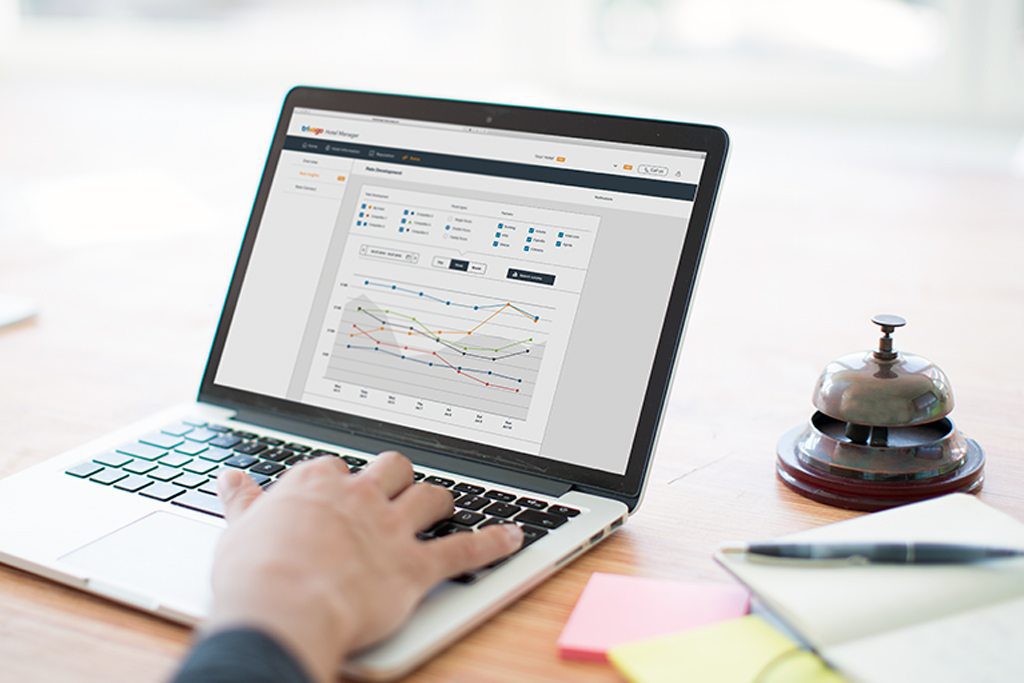Skift Take
Trivago is bold to take on the giants Booking.com and Expedia Inc. by debuting hotel data services, too. But its rate-shopping tool is better designed and possibly more powerful than what its rivals offer. Game on.
Trivago, the hotel price comparison platform, has been mocked a bit for spending more heavily on TV marketing as a percentage of revenue than any other online travel company.
But the Düsseldorf, Germany-based company has vigorously argued that it sees itself as a technology company whose success is heavily based on its investment in data science.
Tuesday, Trivago offers a new data point to support the claim that it’s a data-focused company.
Trivago’s new Rate Insights tool gives hoteliers advice on how they should set their rates to make the most profit.
The tool taps the company’s pool of data on rate-setting trends in local markets to help hotel general managers and revenue managers forecast pricing trends. The information is derived from 250 booking sites and hotel supplier sites, trends in traveler search volume for a hotel’s region, and a calendar of events (such as concerts and sports matches) that could spike local demand.
Marketplaces-as-a-Service
Trivago is following a trend. Several online travel companies have been branching into providing data services for hotels. In autumn 2016, Expedia Inc., a part-investor in Trivago, began rolling out a revenue management tool called Rev+ to hotels that distribute inventory via its network of consumer brands, such as Expedia and Travelocity.
The tool enables a property to assess how its rates compare against local market rivals over the span of a few months’ time and to see predictions of demand in their market based on search activity Expedia Inc. brands are seeing and other data points.
This past spring Expedia also added a tool to help hotels respond rapidly to guest reviews on the PartnerCentral extranet, or online portal, that hotels use to connect with the company.
Meanwhile, Booking.com, the giant subsidiary of online travel behemoth Priceline Group, has also been expanding the array of business intelligence services it provides to hotels since it launched its BookingSuite division in 2015.
BookingSuite offers the broadest array of business decision-making tools for hotels — from the ability to shop competitor properties to check going rates to a rate-setting recommendation tool to software for managing digital marketing and direct booking campaigns.
But parent company Priceline Group hasn’t revealed details on how much traction the division is getting.
Given the competition, how can Trivago’s rate shopper tool stand out? Managing director Johannes Thomas said in a statement that, given Trivago is a metasearch company instead of an online travel agency, it has access to a broader set of rate changes.
“No other rate shopper has this combination of data in this amount and with this granularity,” he said.
At Skift Forum Europe in April, Thomas pointed out that “Trivago has as many engineers as it has marketers.” It looks like that investment is being reflected in a series of new products.
Whether hotels will trust the advice of commission-seeking third parties like Trivago when it comes to setting the rates for their room remains a question that will be answered over time.
Looking ahead, many industry observers will wonder if Trivago will offer a property management system for hotels. A year and a half ago, the company acquired a majority stake in Switzerland-based hotel-tech startup Base7booking, securing a majority stake. Many small hotels use Base7booking’s cloud-based property management system to manage rates and inventory.
In announcing that acquisition, Thomas said: “Together with Base7booking, we envision hoteliers moving from pen-and-paper operations to digital property management, competitive direct booking capabilities, and rates on Trivago with just a few clicks.”
The new hotel insights tool is distributed as part of Trivago Hotel Manager PRO — essentially a company extranet, or online portal, for the more than 300,000 properties worldwide that sell rooms in its marketplace.
It may take some time for the investment to pay off for Trivago. The company hopes hotel managers will earn more revenue through it and will respond by boosting the room inventory that they sell via its marketplace instead of other channels such as Google.
The company seems to be okay with that long-term strategy. In May, Trivago CFO Axel Hefer visited Skift’s offices and said the company was more interested in growth than achieving high-profit margins in the near-term.
The Daily Newsletter
Our daily coverage of the global travel industry. Written by editors and analysts from across Skift’s brands.
Have a confidential tip for Skift? Get in touch
Tags: expedia, revenue management, trivago
Photo credit: Trivago hopes its new rate analytics service will resonate with general managers and revenue managers. Trivago
